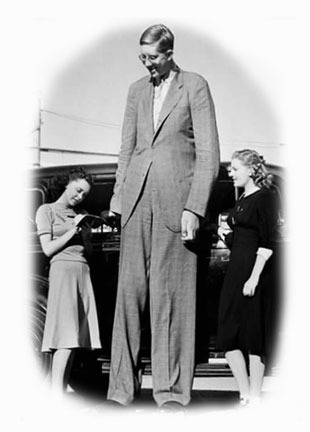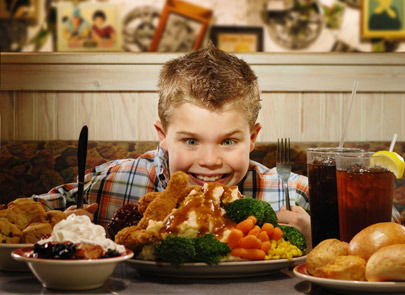Susan Cottrell's Blog, page 59
March 21, 2013
Pick Me, Pick Me!
My adorable 16-year-old will raise her hand at the kitchen table and say, “Pick me, pick me!” so she can say something. Yeah, she’s cute.
I often want God to pick me, pick me, when He has a task that needs doing. Something exciting! He has done that many times, now. He’s just given me a big project to work on (details later)… that thrills heart! But I seem to be slow off the starting blocks. I’m a little afraid it won’t pan out. (God’s the one who’s given it–why should I be afraid??)
Our church gathered together years ago to share a word or a song or something God had given us. A song came to mind but I was still too shy to just sing out so I didn’t do it. A moment later, our lovely worship leader Deb sang the same song. I was shocked and had a moment with the Lord right then and there. I knew He had given me a song to contribute and I declined. So He gave it to someone else.
That lesson has stayed with me. He is happy to let me play a part. He will also accomplish His work. If I decline, He will pick someone else. Oh Lord, I must move on this current project. My heart would break if I dragged my feet and You picked someone else.
I would love to hear what God has picked you to do, large or small. Meanwhile, I’ve got to go… I’ve got a job to do.
“When you come together, each one has a hymn, a lesson, a revelation, a tongue, or an interpretation. Let all things be done for building up.” 1 Corinthians 14:26
“For it is God who is at work in you, both to will and to work for His good pleasure.” Philippians 2:13
Filed under: Abiding In Christ








March 19, 2013
Wildly Unpredictable
Animal prints are really big at the moment. They come and go as fashions, and how to put them together varies. But animal prints are naturally beautiful, and perhaps never really out of style.
I’m traveling right now, and I had to (HAD to) go to JC Penney’s sale, where I picked up several more tops, shoes and a bag with… animal prints. I can’t help it. I counted 21 animal-print items I had with me, including my suitcase and carry-on. Mostly zebra (love the black and white). Also leopard. Also giraffe.
Their beauty is in being predictably unpredictable. We recognize a zebra skin, yet the pattern does not repeat. Consider plaid, strips, polka-dots: all inorganic, manmade, perfectly predictable patterns. I think that’s how mankind likes it — a pattern we can anticipate and even draw for ourselves. We like life that way too because it feels less risky.
But God’s designs don’t repeat. A giraffe is a giraffe, but no giraffe skin is exactly the same as another. The sun comes up every morning, but the timing shifts. Spring is generally warmish, but we might get a surprise snowstorm.
God not only designs the unpredictable, He lays beauty over the wildly dangerous. The beautiful tiger skin is laid over a… tiger! The ocean bobs rhythmically above sharks! The vastness of space is both enthralling and terrifying!
God is unpredictable in our lives, too. He told Moses to strike the rock for water the first time, and to speak to the rock the next time. Jesus restores sight with spit one time and with spit and mud another time. God repeats patterns of guiding and restoring His children, but each event is unique. We recognize His work, but we cannot reproduce it ourselves. We may like the comfort of the predictable, but He insists on much more than that for us.
Let’s set aside stripes and polka-dots to prepare for the unpredictable. How do we do that? Grab onto the God who has proven Himself trustworthy and has revealed Himself as wildly unpredictable. Only there will we find beauty beyond our wildest imagination!
Filed under: Abiding In Christ








March 14, 2013
Beauty is Wasted on the Beautiful
Have you ever watched a teenaged girl in front of the mirror? She points out a dozen imaginary flaws, invisible to the naked eye, and you just shake your head. She’s beautiful, inside and out, but she’s worried about nothing.
Did I mention that women also struggle with imagined imperfection? …and sometimes men?
A young child doesn’t hate his body. He will proudly run around naked. Body contempt is learned. From peers, from family, from culture – I don’t know. But we aren’t born with it. I’m not even sure what we can do with this information, except to ask God to change it in us.
Life is too short to disdain our own bodies. Our bodies that work for us, and carry us, and process our food and convert calories into energy, and think and feel and refresh our blood while we are not even paying attention.
God bless you, and your beautiful body, whatever it looks like, however it’s functioning. God give you gratitude for all that your body does day in and day out. And God help you enjoy the life you live in it to the fullest!
Filed under: Abiding In Christ, Parenting








March 12, 2013
Tortured for Faith
Please pray for Pastor Saeed Abedini, a U.S. citizen being tortured in prison in Iran for his Christian faith. Click here. ACLJ continues to fight for his freedom, and for the millions of Christians oppressed and displaced by Muslim Brotherhood.
I write about this from deepest compassion for victims of abuse and torture. I am also disturbed by the underlying idea of compelling a change of heart. Isn’t someone’s heart by definition beyond the reach of another’s control? Isn’t our heart our very own, to determine in concert with God (or not)? Isn’t our heart by its very nature our own personal and private life? I realize I was molded as an American — my very life and breath is about freedom. But I also know that God allows us choice — to accept or deny Him, to follow or renounce Him.
How can a change in faith be compelled? To declare a compulsory state religion — whether it’s Islam or Atheism or Christianity — has never worked. Faith is inherently voluntary.
Christianity is the only doctrine of faith in all the world that includes the word “freedom” in its doctrine. An astounding thought. The concept of freedom is woven throughout the bible from beginning to end. God offers a voluntarily love relationship with us as His children, because a coerced relationship has no value.
Surely there is a world of difference between a radical group torturing a pastor to renounce his Christian faith, and a family shunning a teen to change his mind, or a spouse controlling or manipulating a spouse to achieve a desire result. But the underlying attempt to control is the same.
Lord, God, help us understand our freedom in you. Help us see fully who you are and who you designed us to be.
“It is for freedom that Christ has set us free.” Galatians 5:1
Filed under: Abiding In Christ








March 5, 2013
How Do You Free Your Children’s Heart?

When I was young, my heart’s desire was to marry somebody wonderful and have children. Parenting was a soft-focus image of brushing my daughters’ long silky hair, enjoying intellectual family dinner conversations, and reading beautiful literature to my children as they lay under blankets by the fire.
Once I actually had kids, this was the picture: I explode in anger over a mild inconvenience; I am far more selfish than I thought; and for my precious child to scream, No! – or lie to my face – upsets me more than I thought possible. And who factored in the cooking, cleaning and laundry?So here I am with a parenting book!You see, in these twenty-some years of parenting, God has grown me up. He has softened the edge of my anger; he has made me less selfish; and He has brought me to an intimate and loving relationship not only with Him but with my children. We are not a perfect family, but we are a healthy family. (It is only after giving up the image of a perfect family is it possible to be a healthy family.) I have learned many things at His hand that I would like to share, that I hope will encourage you.
I grew up in a home where religion was ridiculed, and though I attended the occasional Sunday school class at a tender age, my parents were not Christian. The years after my mother died (I was nine) were marked by my father’s open hostility to anything religious. Despite my home of violence and abuse, God accepted me as His child. Three important truths have emerged for me from this background.
First, God seeks us out. I was very young when He drew me to Himself, giving me the desire to pray and read Psalms. God personally sought me out and revealed Himself to me. I knew that God loved me and that I could interact with Him authentically and unashamedly. I later learned from the Bible that we love because He first loved us, and while we were going out merry way, He way, He draws us – calling us by name and seeking a love relationship. Had He not been calling me those long and confusing years, I would not have stood a chance.
This leads to the second truth: nothing can thwart God’s plan. He will reveal Himself to us through our fallen lives – including a dysfunctional family. I might easily have fallen through the cracks, but God’s plan is not thwarted and, despite it all, He saved me. We can take courage in God’s great sovereignty over our children, and not be afraid for them. Whatever responsibility we have to our children, we are primarily responsible to hear God and follow Him. He is sovereign. What a relief!
The third vital truth is that the trappings of church are not the same as relationship with God. My own relationship with Jesus is not mixed with memories of sitting in pews, passing a plate or singing hymns. These are not wrong things, but they are not the same thing. Countless Christians the world over, throughout history, have known God intimately without any of this.
Once, as young Christians, my husband and I were rehearsing music with the young piano player from our church. He began playing an old hymn that we didn’t know. “You don’t know that?” he said. “What kind of church did you grow up in?!”
We didn’t grow up in church. Jesus lives outside church, too.
Christ is not the same as “Christianity.” I have learned to focus on the simplicity and centrality of Christ (2 Corinthians 11:3). While growing up in a non-Christian home carries grave dangers, knowing Him apart from the trappings of religion is an inestimable advantage. These truths have given me a heart-knowledge that wild horses could not drag out of me: Jesus is about the heart. Nowhere do we see Jesus focus on appearance, words, behavior, obedience or anything except as it issues from the heart. He does not focus on the fruit; He waters the tree and the fruit comes. Everything Jesus ever did shows us that the heart is what matters. He let a woman go who had been caught in adultery (John 8:11). But he lambasts a church leader for asking a question (Matthew 16:1-4). As a man thinks in his heart, so is he (Proverbs 23:7).
Jesus offers to restore our heart, give us a new heart, and indwell our heart. The more deeply I know Him, the more He shows me that all of life issues from the heart. When we know Him, He will set us free.
Our heart freed to love God, our redeemed selves, and those around us, make life worth the living. A heart freed in Christ brings maturity, joy, Christ-likeness. This journey in parenting is about our heart turned to our children and their hearts turned to God. “Watch over your heart with all diligence, for from it flow the springs of life” (Proverbs 4:23). Parenting begins with the heart.
Filed under: Parenting








March 1, 2013
You Definitely Won’t Take it With You
My mother-in-law moved into our house after her cancer diagnosis. I was grateful for the opportunity to serve her and love her and let the kids enjoy her. She was grateful for the company. We moved everything into the large family room off the kitchen where she had privacy, but we were all easily accessible when she needed us.
I grew to love her all the more as we enjoyed her last six months together. Many lessons came, including this particularly poignant observation. I was going through her stuff, helping her find something she wanted. Her drawers were full of her stuff — papers thirty years old, clothes just as old. I suggested we get rid of some of it that she didn’t want anymore. No, she wanted nothing to do with that. Are you sure? Yes, she said. I was still rifling through the top drawer and she finally said, cheerfully, “If you want to get rid of stuff, get rid of your own stuff!” Fair enough, I thought and we moved onto other topics.
Two days later, she died. (Yes, I know… if I’d known it would be two days, I would not have talked about the stuff.) That week, we went through all her papers, trinkets, stuff she had not looked at in ten to twenty years. None of it had any meaning to anyone anymore. All this stuff that was indispensable days before was no going out the door.
Life is short. It is definitely not about stuff. That experience has encouraged me to lift my eyes, see life around me, and wade out of my stuff. I wish that for you as well.
Filed under: Abiding In Christ








February 28, 2013
Delightful Review of How Not to Lose Your Teen
Please enjoy this book review, written and posted on Amazon yesterday.
Book About Raising Christian Teens (reviewed by a NON-Christian reviewer) [her words]
Posted on February 27, 2013 by Linda Thorlakson
Who is the Intended Audience for How Not to Lose your Teen: Raising Kids who Love God and You Too?
As you may have already guessed from the title, author Susan Cottrell’s intended audience is both Christian and actively engaged in raising kids. What may have eluded you, however, is that these Christians need not subscribe to any particular belief or aspiration beyond a belief in Jesus (as a role model) and the aspiration to form a relationship with God through him. These child-rearers need not even be raising teens. They could be raising kids of ANY age.
What Does Cottrell Offer her Readers?
Cottrell’s advice is as universally applicable as it is child/circumstance specific. The only consistent rules consist of: looking toward Jesus as a behavioral role model, looking to God for guidance, trusting your heart, and teaching the kids in your life (through your example) to do the same.
Why Would a NON-Christian Recommend a Book Tailored to Meet Needs of Christians?
As neither a Christian nor parent of a teen, I hadn’t expected Cottrell’s book to offer me anything worthy of my recommendation that others might benefit from reading it. I was wrong. Although Cottrell didn’t convert me to Christianity (not her intent), she DID persuade me to let go of my black and white illusions about child-rearing. She converted me to the wisdom of being open to all the glorious colors and shades of the entire array of potential parental responses to any particular child within any particular set of circumstances.
What Makes Cottrell’s Advice so Irresistible?
From the first page, readers are swept into a world which is as familiar as it is frightening. Fueled by vivid metaphors and anecdotes, Cottrell takes readers on an adventurous journey through the joys, frustrations, hopes, and worst-case fears of parenthood. Along the way, she establishes an intimate relationship with her audience by sharing her insecurities, doubts, and failures. She’s as eager to learn from her own faults and mistakes as she is to confess them to others (so that they TOO can learn from them).
The journey from here to there is plagued by enough wrong-turns, missed landmarks, and dead-ends to convince even the most discouraged of parents that it IS possible to go off course time and again without destroying the sacred bond between that compass residing within their hearts and the best interests of their children.
To Whom Would I NOT Recommend This Book?
I would NOT recommend this book to you if you’re not currently: raising children, looking to Jesus as both a role model and mentor for deepening your relationship with God, and eager to be the best parent you can possibly be (while convinced that your best is nowhere near good enough). In other words, I would NOT recommend this book to me. Although I AM convinced that my best isn’t good enough, I don’t meet the rest of the criteria. If, however, you meet all the criteria, I can’t think of a single reason not to recommend this book to you.
Filed under: Parenting








February 27, 2013
Do You Want to Lose What Weighs You Down?
I’ve been decluttering our two-bedroom apartment, and I cannot believe what I have pulled out of that thing! How much can anyone accumulate in a two-bedroom in a year and half? Yet, here it all is! (I say anyone, because my husband does not collect clutter, and what he has he regularly purges.) I always feel lighter and leaner when I declutter, and I virtually never miss a thing!
When my single friend in her forties moved, she fit all her belongings in the back of a pickup! How impressive is that? Just imagine the freedom! I feel a similar need to stay light on my feet. Ready to go. Jesus, the most important Person on earth, had virtually no belongings and could go easily wherever He needed.
As I continue to pull out and throw out, I realized clutter is not just physical. It’s mental. Those who do clutter, do it in many areas. How many files are on my computer that I will never use — previous versions of something I’ve already published? Thoughts that no longer resonate, but there they remain. How many old conversations long since over clutter my brain?
What other kind of clutter might we accumulate without even realizing it? Offensive deeds unforgiven. Guilt feelings unreleased. Words of love left unspoken. Life is too short. Jettison that junk and make room for the rest of your life!
Filed under: Abiding In Christ








February 26, 2013
At a Buffet, How Do You Know When to Quit Eating?
The obvious answer is, “When you’re full.” But do we stop when we’re full? I can easily overeat. I like food, I see it as a treat, and I don’t like denying myself “good things.” In our lives of plenty—when most Americans have enough food even in hard times—how do we know how much is enough? When do we have enough clothes, or shoes, or kitchen gadgets? When have we eaten enough? Surely that is an important question in an affluent society.
Psalm 23 says: “The Lord is my Shepherd, I shall not (be in) want; He makes me lie down in green pastures.” Sheep, I’m told, will not quit eating until all the grass is gone. If the pasture is still green, they are still eating. To lie down in green pastures goes against their… our… very nature. But Jesus can make us that content. Our Shepherd can entreat us lie down in green pastures. We can stop eating when there’s still more food, even when there’s a little more room in our tummies. We can trust that when we are hungry again, He’ll have more food for us. To be able to stop when He says to, to be content — that is the challenge.
To respond to the gentle leading of the Shepherd, that’s the opportunity as we sink deeper into Him, as we grow more accustomed to His guidance.
Paul and Silas did not run out of jail when an earthquake knocked the doors open and unfastened their shackles. (Of course it was God – when does an earthquake unfasten shackles?) Surely the natural impulse would be to run! Yet, Paul and Silas heard God’s voice – they remained in prison. They lay down in green pastures. Because Paul and Silas remained, the jailer and all his household became believers. We don’t know what’s going to happen when we lie down in green pastures, but if our Shepherd is telling us so, we can bet it will be full of His rest and His peace.
Filed under: Abiding In Christ








February 22, 2013
How Intimidating Are You?
 “Imagine if your boss came in and asked for something and he was 18 feet tall.” This was my husband’s observation as we watched a two-year-old foisted up on his dad’s shoulders. “Or if a cop pulled you over for speeding and he was 18 feet tall. You’d never do it again!”
“Imagine if your boss came in and asked for something and he was 18 feet tall.” This was my husband’s observation as we watched a two-year-old foisted up on his dad’s shoulders. “Or if a cop pulled you over for speeding and he was 18 feet tall. You’d never do it again!”
Yesterday I talked about how our image of God is formed by our view of our Dad (or Mom or other father-figure). We will not represent God perfectly as parents. Our daughter may remember Dad pushing her off her lap and interpret that as rejection, when it may be the dad had to go to work. But I do think that at 18 feet tall, we have to remember our impact on our kids. Our displeasure, loud voice or anger may be scarier to our kids than we think. Most of us struggle with anger, don’t we? And we won’t get it right. That’s what God’s healing is for! But perhaps you could take just a moment to see if you could say what you need to in a kinder or more neutral way. The rewards for your child’s peace, and your own peace, will be well worth it.
Filed under: Parenting



















